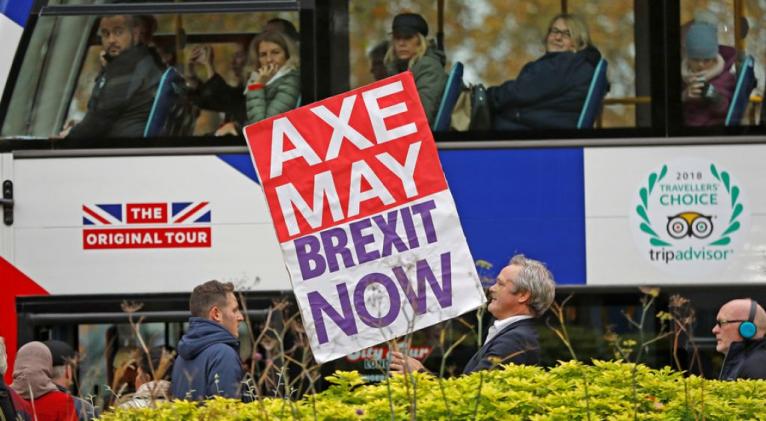Text for post-Brexit ties between EU & UK ‘agreed in principal’ – Tusk
especiales

Britain and the EU have agreed on the text of the Brexit deal “in principle at a political level,” President of the European Council, Donald Tusk announced on Thursday.
EU leaders have agreed on the Brexit draft “at negotiators’ level and agreed in principle at political level,” Tusk wrote on Twitter, citing a message which he had received earlier from the head of the European Commission, Jean-Claude Juncker.
@eucopresident I have just sent to EU27 a draft Political Declaration on the Future Relationship between EU and UK. The Commission President has informed me that it has been agreed at negotiators’ level and agreed in principle at political level, subject to the endorsement of the Leaders.
The text was discussed by Juncker and British Prime Minister Theresa May on Wednesday. The draft of the divorce deal was then sent to the 27 other EU states.
The draft of the British-EU post-Brexit relations, obtained by Reuters, envisions“wide-ranging and balanced economic partnership,” including “a free trade area as well as wider sectoral cooperation.”
Parties agreed on building “a trading relationship on goods that is as close as possible,” while Britain and the EU will “retain their autonomy and the ability to regulate economic activity.”
The deal is expected to be signed at a special EU summit on Sunday.
Lengthy and tense Brexit negotiations led to several rifts within the British government. May’s cabinet was thrown in disarray last week after several high-profile ministers resigned, including Brexit Secretary Dominic Raab and Minister of State for Northern Ireland Shailesh Vara. They left their posts in protest at Brexit terms agreed by May.
The series of resignations and the renewed political in-fighting prompted some politicians to question May’s future as prime minister.
The former head of the anti-establishment UK Independence Party (UKIP), Nigel Farage, called the Brexit terms the “worst deal in history” and argued that the ensuing political crisis will eventually lead to May’s downfall.
On Wednesday, the PM urged everyone in Parliament to support the draft. As she was grilled by MPs unhappy with the deal, May said the prospects of no deal will leave Britain with “more uncertainty, more division or it could risk no Brexit at all.”
Andrew Rosindell: May, cut away EU's tentacles
She later expressed confidence that an agreement will go through before March 29, 2019 – the date set for the nation to leave the EU.
Even before May’s cabinet came close to striking a deal with the EU, negotiations polarized the nation. Vocal Brexit supporters, like former Foreign Secretary Boris Johnson, had been accusing the prime minister of not having the country’s best interests at hand. Some were even skeptical that the government would reach any agreement with Brussels.
Johnson resigned in July, blasting the government for “surrendering control over our rulebook” and steering the nation into becoming EU’s “colony.”
“It is as though we are sending our vanguard into battle with the white flags fluttering above them,” the politician stated at the time. His exit followed the departure of then-Brexit Secretary David Davis, also highly critical of May’s stance in talks with the EU.













Add new comment